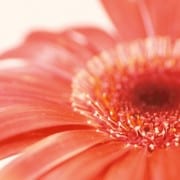31 Environmental Tips for Protecting Children’s Health
These tips from the Environmental Protection Agency are practical, and many are easy to implement. See if you can make a family habit of those that seem most relevant to your lifestyle.
Discussion ranges from lead poisoning in the home to keeping pesticides away, to ensuring water sources are pure. Suggestion for protecting you family from radon and carbon monoxide are also covered.
Help Children Breathe Easier
- Don’t smoke or let others smoke in your home or car. Avoid all secondhand smoke
- Keep your home as clean as possible. Dust, mold, certain household pests, secondhand smoke, and pet dander can trigger asthma attacks and allergies.
- Limit outdoor activity when air pollution is bad especially on ozone alert days
Protect Children from Lead Poisoning
- Wash children’s hands before they eat and wash bottles, pacifiers, and toys often
- Wash floors and window sills to protect kids from dust and peeling paint contaminated with lead — especially in older homes
- Run the cold water for 30 seconds to flush lead from pipes
- Get kids tested for lead — check with your doctor
- Test your home for lead paint hazards if it was built before 1978
- Don’t use hot water from the tap for drinking, cooking, or making infant formula. Some hot water heaters increase lead levels.
- Certain water filters can remove lead. The filter should be certified by independent testing. When installing new plumbing, make sure it meets leadfree standards.
- Drinking water can be tested for lead.
- For more information call the National Lead Information Center 800.424.LEAD
Protect Children from Carbon Monoxide (CO) Poisoning
- Have fuel-burning appliances, furnace flues, and chimneys checked once a year
- Never use gas ovens or burners for heat and never use barbecues/grills indoors or in the garage
- Never sleep in rooms with unvented gas or kerosene space heaters
- Don’t run cars or lawnmowers in the garage
- Install a UL approved CO detector in sleeping areas
Keep Pesticides and Other Toxic Chemicals Away from Children
- Put food and trash away in closed containers to keep insects and other pests from coming into your home
- Don’t use pesticides if you don’t have to — look for alternatives. When necessary, hire pest control companies that use integrated pest management approaches; check that the company is state-registered
- Read product labels and follow directions carefully
- Use bait & traps instead of bug sprays when you can and place the bait & traps where kids can’t get them
- Store items where kids can’t reach them, and never put in other containers that kids can mistake for food/drink
- Keep children, toys & pets away when using pesticides and don’t let them play in fields, orchards and gardens after pesticides have been used
- Buy organic food when possible, both produce and packaged foods. Avoid imported produce. Wash fruits and vegetables under running water before eating — peel them when possible.
- Get involved with the local schools to reduce pesticide use and encourage integrated pest management
Safeguard Children from High Levels of Radon
- Test your home for radon with a home test kit
- Fix your home if your radon level is 4 pCi/L or higher. If you need help, call your State radon office or 800.644.6999
Protect Children from Contaminated Fish and PollutedW
- Call the local or state health department to learn about any local advisories for limiting fish consumption
- Take used motor oil to a recycling center and properly dispose of toxic household chemicals
- Find out what’s in your local drinking water by calling your local water system for your annual drinking water quality report or, if you have a private home drinking water well, test it every year. Call EPA Hotline: 800.426.4791 for more information
- Use quality bottled water; some brands are no better than tap water









